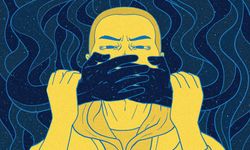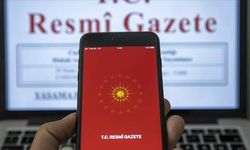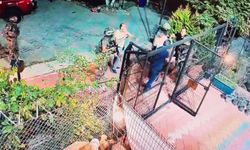Reporters Without Borders (RSF) condemns an amendment to the law on "Internet crimes" that Turkey’s government has submitted to parliament with the aim of silencing mounting online criticism. The government’s goal is to control social media, the only remaining refuge for critical journalists in Turkey, RSF said.
on the latest social media regulations bill. Turkey has more than 37 million Facebook subscribers and 16 million Twitter subscribers, and President Recep Tayyip Erdogan is keener than ever to tighten his legislative grip on these and other social media platforms after being undermined by a great deal of online criticism since the start of the coronavirus crisis.
At his request, the ruling Justice and Development Party (AKP) submitted the bill to amend the law on Internet crimes to parliament on 21 July. This is a law that, since its adoption in 2007, the authorities have already massively exploited to silence online media by abusing provisions penalizing insults and threats to national security.
The government now aims to force social media platforms to open an office in Turkey, comply with requests and decisions by Turkey’s courts, and pass on notifications from the Turkish authorities to their subscribers. Pressed by the president, parliament could vote on the bill this week, before the start of its summer break.
The proposed 11-article amendment comes on the heels of one that has subjected digital media to control by the High Council for Broadcasting (RTÜK) since September 2019.
PROGRESSIVE SANCTIONS
AKP vice-president Özlem Zengin announced on 21 July that the government’s aim is for each social media platform with more than 1 million connections a day to appoint a representative in Turkey with whom the Turkish authorities can resolve problems arising from cases of insults, intimidation andviolation of privacy.
Claiming that France, Germany and the United States are trying to introduce similar legislations, Zengin said the aim was not to close down platforms. If they refuse to appoint a local representative, she said, they will be subjected to phased sanctions: an initial administrative fine of 10 million Turkish lira (1.3 million euros), then a fine of 30 million lira (3.9 million euros), then a ban on advertising and withdrawal of earnings, and finally, as a last resort, a reduction in bandwidth. Internet access providers would be required to implement this final sanction within four hours.
The Turkish authorities also want these platforms to create a mechanism for responding within 48 hours to complaints about “violations of personal rights” or to judicial orders to remove content. If offending content is not removed, websites will be rendered inaccessible within four hours.
Internet hosting service providers that fail to inform the persons concerned about the Turkish authorities’ requests could be given an administrative fine ranging from 1 million lira (130,000 euros) to 10 million lira (1.3 million euros).
“After being politically weakened, it is deplorable that the sole response President Erdogan has found is to nationalize the management of international digital platforms in order to silencethe fierce criticism he has been receiving on the Internet – the only refuge left for outspoken journalists,” RSF Turkey representative Erol Onderoglu said.
“Subjecting these platforms to the control of courts that are under the president’s thumb will close the small window through which many online journalists are still just about managing to breathe. It is clear that such control aims to silence the growingpolitical unrest and will impact on the flow of critical and independent information, which is primordial in a polarizedsociety.”
REACTIONS AGAINST TWITTER
The president had nothing to say when the army of trolls controlled by his party waged intimidation and disinformation campaigns against his critics, including journalists of various political tendencies. In June, Twitter closed 7,340 accounts controlled by AKP trolls that had executed a total of 37 million shares, including 1.7 million (tweets, retweets, etc.) involving Erdogan.
While carrying out a series of reforms last April that included the early release of 100,000 detainees as an anti-coronavirus measure, the government tried to introduce an amendment that would have ended the right to online anonymity on the declared grounds combatting “violations of privacy” on social media platforms.
Withdrawn at the last moment, it has resurfaced now following the irresponsible sharing of tweets insulting Erdogan’s son-in-law, finance minister Berat Albayrak, after he announced that his wife, Esra Albayrak (the president’s daughter), had given birth to their fourth child. Erdogan’s aides blocked comments on his account just as thousands of young people were expressing disagreement with his comments, and as the hashtag #OyMoyYok (We won’t vote for you) was leading Twitter trends.
“You understand now why we oppose these social media,” Erdogan said in 1 July. “This nation and this country do not deserve this treatment. This is why we want to address this issue as quickly as possible in parliament and suppress all these platforms.”
DECLARING WAR ON INDEPENDENT JOURNALISM
The government also wields direct control over many judges, who censor scores of online articles without giving any reason. In mid-February, one of these judges ordered the that had been published online by news sites and other media outlets including Cumhuriyet, Bianet, Diken, BirGün, Artı Gerçek, Gazete Duvar, T24, Odatv, Sputnik Türkiye, Evrensel, Halk TV, Tele1 and Gerçek Gündem.
They all referred to the finance minister’s purchase of land in Eastern Thrace (Turkey’s westernmost region) through which the government plans to dig a canal linking the Black Sea andthe Sea of Marmara.
According to the news website Bianet, RSF’s partner in Turkey, 586 online articles and nine social media accounts were rendered inaccessible by the Turkish courts in 2019 in the course of “the Turkish government’s war against independent information online.”
In March 2019, RSF reported that in 2018 the courts had blocked access to at least , including stories about political corruption, clientelism, human rights violations and exploitation or workers, and that an unknown number of content blockings were carried out without references to the courts.
The Turkish authorities also had no qualms about blocking all access to the online encyclopaedia Wikipedia from April 2017 to January 2020 because of content accusing them of complicity with Islamic State.
Turkey is ranked 154th out of 180 countries and territories in .






